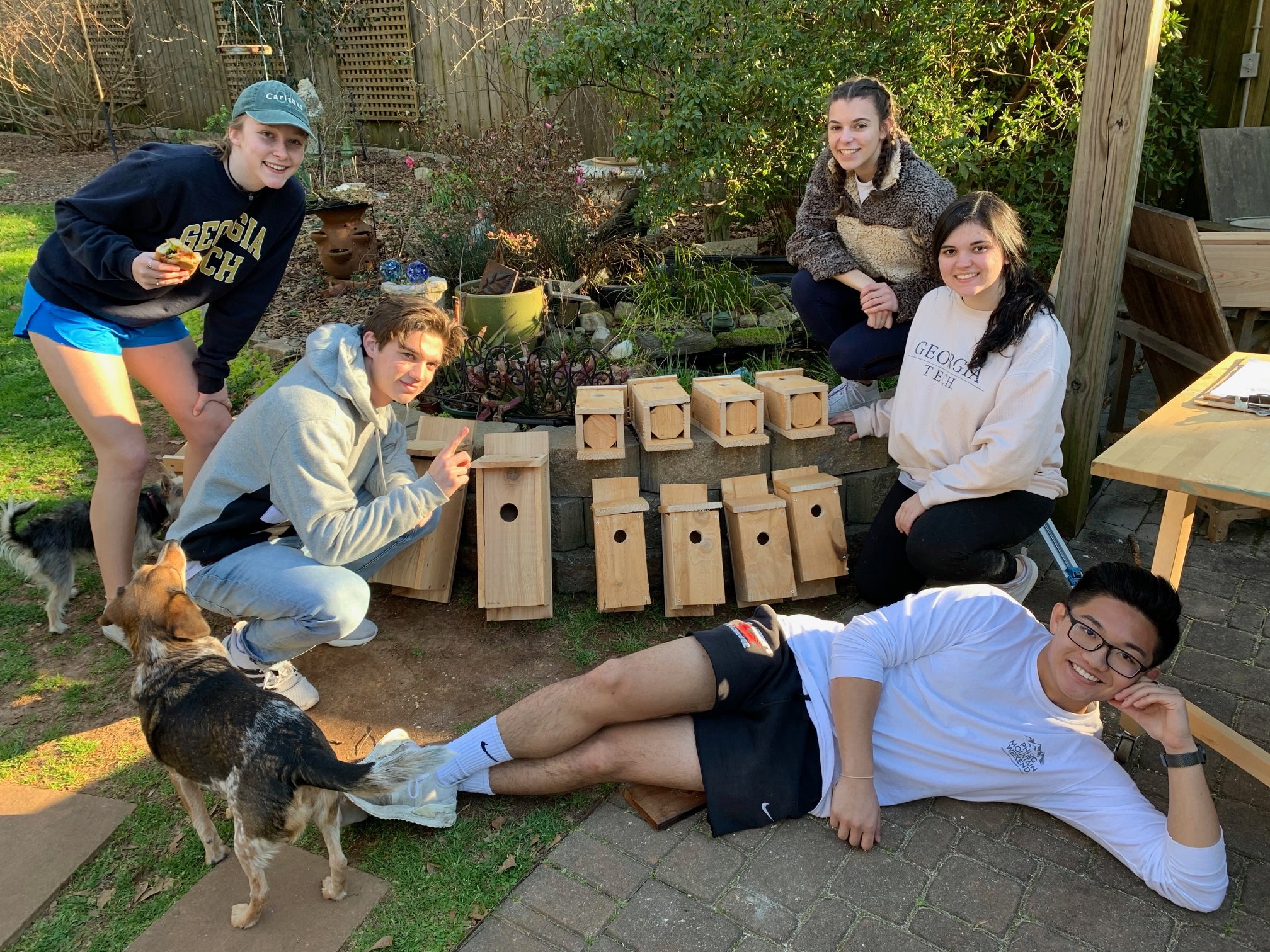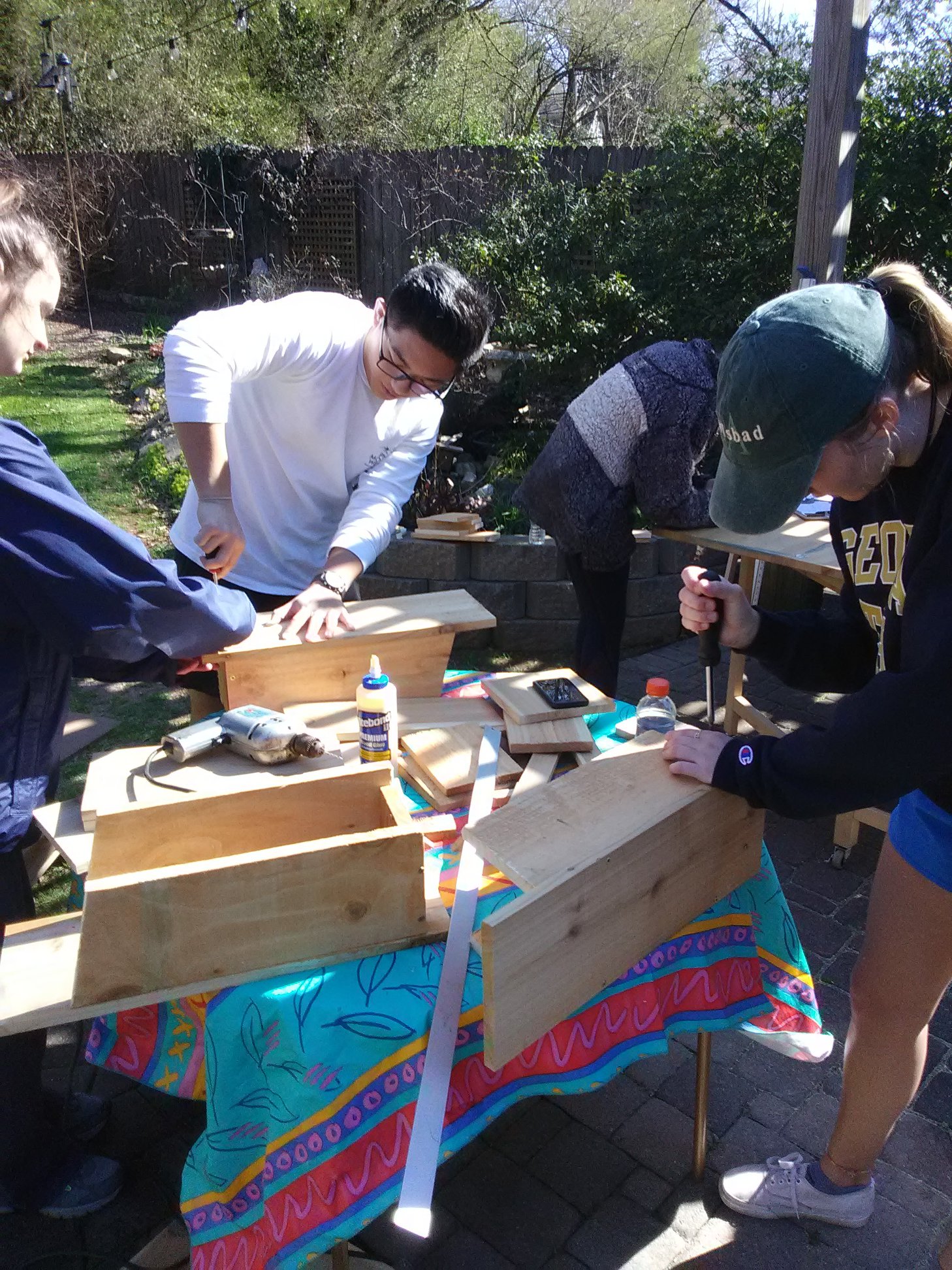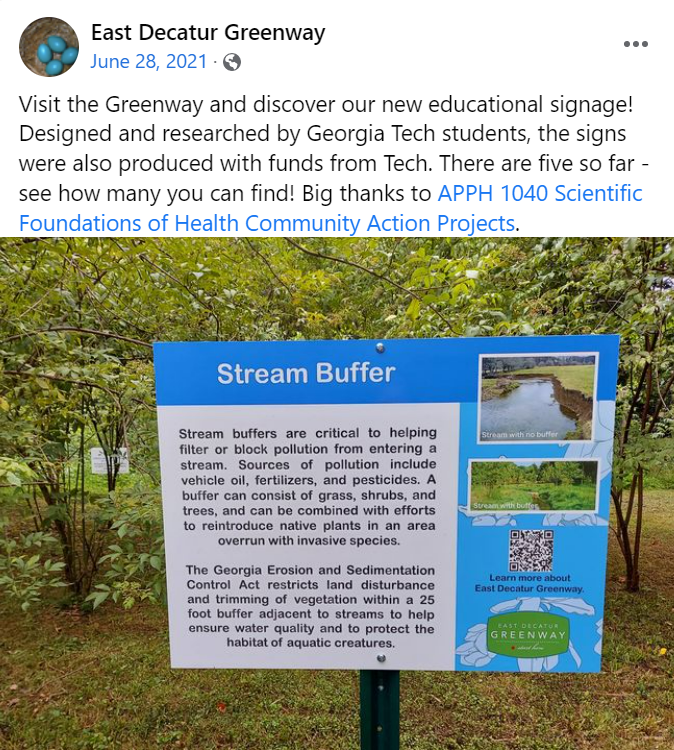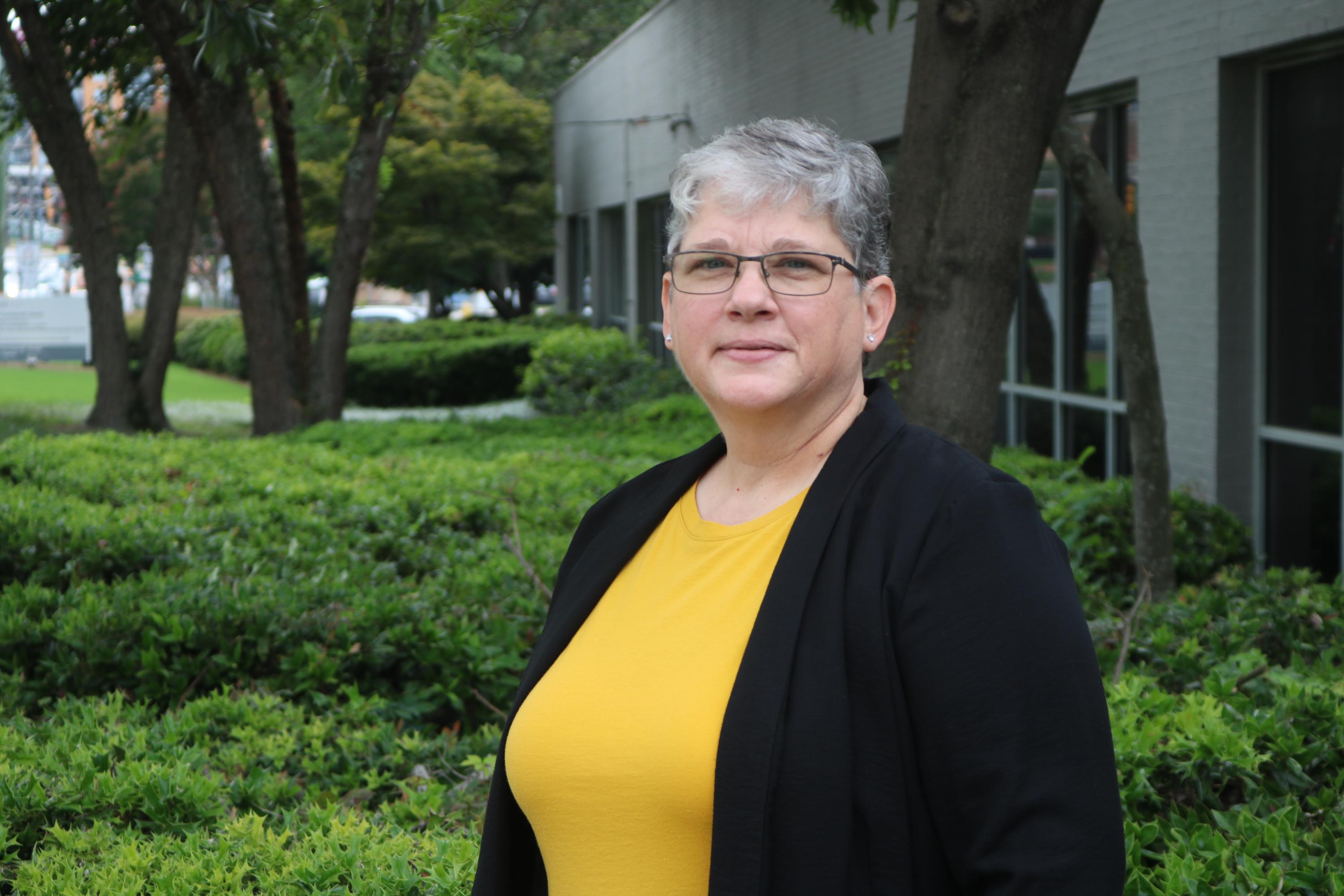As students kick off fall semester, mental health and wellness-focused classes in Applied Physiology are helping them learn time and stress management skills, while also encouraging them to give back to their communities and foster conversations with their peers.
“I was involved in the initial strategic planning efforts for Cultivate Well-being and I think it will have a significant impact on campus,” said Teresa Snow, senior academic professional in the School of Biological Sciences. “Implementation is being rolled out, particularly for students right now, with more information for faculty and staff coming soon. Currently, I co-chair the JED Academic Culture sub-committee and will continue to work with colleagues to improve the academic environment.”
Snow, who is also a 2022 Serve-Learn-Sustain (SLS) teaching fellow, credits three Applied Physiology classes, one of which is required for all students before they graduate, for teaching students important practical skills. APPH 1040, 1050, and 1060 teach students how to manage stress and work through anxiety in healthy ways, and come up with resilience strategies they can rely on — not just in higher education, but for the rest of their lives.
“(APPH 1040, Scientific Foundations of Health) is a course that is directly applicable to everyday life,” Snow said, “and we want them to take those concepts and apply them. We try to adapt the curriculum, so we have been focusing more on stress and coping skills, but we also talk about healthy lifestyle, cultural differences, diversity and sustainability.”
Snow is focused on the health and wellness of first-year students, in particular.
“It’s important to get the [first-years] coming in, and help them with the transition to college life. It’s an extreme change for them. That time of adjustment and making new friends is very important,” Snow said. “We’ve been in tune with our student needs and will continue to adapt to them. Certainly we’re having conversations about student stress. We have all of our classes addressing it. We have the newer APPH 1060 class (Flourishing: Strategies for Well-being and Resilience), which is really focused on mental health. As a team we are committed to meeting students' needs and helping them thrive at Georgia Tech.
“On campus we need to do as much as we can to help them make connections, and know the resources that are available to them, and we also need to be flexible,” she said. “In our conversations with students struggling, the focus should be not only on connecting them with resources, but also giving them the flexibility to recover and succeed academically.”
Over the past two school years, she added, “students have dealt with anxiety and social isolation — they’re still trying to adjust — some classes are still in hybrid mode, but I think this semester will be a little bit more of a return to normalcy. We have to watch the Covid rates and see if the guidelines change, but being present in the classroom is important.”
Volunteerism as effective wellness tool
Snow, who used to be the sole coordinator for the Georgia Tech wellness requirement, helped develop the APPH 1050 Science of Physical Activity and Health course. As it grew, she and others in the School of Biological Sciences realized they needed another director. Christie Stewart, senior academic professional, now fills that role. School of Biological Sciences senior lecturers Michele Rosbruck and Adam Decker, and adjunct Leslie Baradel also teach the APPH classes; both Baradel and Stewart are certified Thriving and Resilience Facilitators through the National Wellness Institute.
Snow saw the wellness advantages of having students get off campus and spend time in communities working with community partners. “We give them an opportunity to do basic volunteer work, have fun and socialize,” Snow said. “We also give them opportunities to choose higher-level projects. During Covid, student teams worked remotely designing infographics and other materials with the Fulton County Health Heart Coalition to get messages out about protecting yourself and wearing masks.”
The classes are also working with partners to help children in hospitals, as well as people in between living situations and those without permanent housing in Atlanta. “Some of those [organizations] have specific projects and want to get our students’ ideas and input. They need our help and our students can use these projects to make an impact in the community.”
For several years, students in Snow’s courses have volunteered with local agencies.
In 2019, a team from APPH 1040 volunteered their time to help clean and stock Habitat for Humanity’s ReStore, a non-profit home improvement store offering donated appliances, furniture, and other household items. Volunteer and Georgia Tech student Kara Ann said in a YouTube video produced for ReStore that the topic of the health class project “was working with a community partner, creating something special to give back to the community partner.”
In other projects APPH 1040 students volunteer to work on educational and garden maintenance projects at the Friends School of Atlanta, Walter’s Woods (which recently received Audubon Certification in part due to student efforts) and East Decatur Greenway. Snow told the Friends School’s Friendly Light Magazine that Georgia Tech students can use the course “to help them focus outside of themselves and do something useful for their community.”
“These projects build leadership, communication, organizational skills and self-confidence while making social connections,” Snow said. “It's a great way to improve personal well-being and mental health while helping communities and getting real-world experience.”
Links to resources
AAPH 1040 Facebook page shows other partner projects that Teresa Snow’s class have staffed with volunteers.
Georgia Tech Student Engagement and Well-Being
Mental Well-Being for Students — This 45-minute online course helps learners practice self-care strategies, recognize when they or their peers are in distress, and take action to find additional support.
Student Life: Mental Health and Well-Being — A listing of campus resources
Georgia Tech Counseling Center — Counselors available 24/7. Business hours: 404-894-2575. After business hours: 404-894-2575 or 404-894-3498
Georgia Tech Campus Police — on campus, 404-894-2500; off campus, 9-1-1.
College of Sciences satellite counselor Tara Holdampf’s office is in the Molecular Science and Engineering Building (MoSE), Room 1120B. Consulting hours are Mondays, Tuesdays, & Fridays — 10:00 AM-11:00 AM; Wednesdays, & Thursdays — 2:00 PM-3:00 PM. Click here for more info on her satellite counseling services, or call the Georgia Tech Counseling Center at 404-894-2575.
For More Information Contact
Writer: Renay San Miguel
Communications Officer II/Science Writer
College of Sciences
404-894-5209
Editor: Jess Hunt-Ralston






